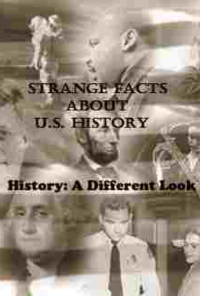Weird History: 2
When One Has The Last Word
What a person decides to have put on their headstone can say a lot about what was important in life. One would think that a man like Thomas Jefferson might need several headstones to list all his accomplishments. But the inscription he wrote left out a few things. His headstone reads, “Here was buried Thomas Jefferson, author of the Declaration of American independence, of the Statute of Virginia for the Religious Freedom, and Father of the University of Virginia.” He made no mention he was the second vice-president or that he was the third president.
A Town By Any Other Name
When the pilgrims settled in Plymouth, Massachusetts, this of course after originally being dumped in Provincetown, because the crew of the Mayflower was tired of the complaining. The town was called Plymouth since they set sail from Plymouth, England., or so the story goes.
The truth is—the city was already called Plymouth.
In 1614, Captain John Smith mapped out the northeast coast starting from Jamestown, Virginia, and he returned to England with a map where the landmarks listed had Indian names. Smith asked Prince Charles to replace those names with good old fashioned English names, and Charles complied.
When Prince Charles came to the name “Accomack”, he changed it to Plymouth. The fact that the Mayflower set sail from one Plymouth, only to dock in another we can say was nothing more than pure luck.
On a side note: Of the U.S.' first twelve presidents, the only two never to own slaves were John Adams, and his son John Quincy Adams; the first of which famously said that the American Revolution would not be complete until all slaves were freed.
